#luminary piano
Explore tagged Tumblr posts
Text
*hauntingly beautiful violin music plays*
Romantasy readers: 💭✨🌌🗡️🧝🏻♀️🔮🐉
#no better feeling#I swear I see a whole new world before me#fantasy books#romance novels#romantasy#spicy reads#fantasy romance#readers of tumblr#readers community#reader things#reader thoughts#booktok#romance reader#dark romance#mine#thoughts#violin music#luminary piano#velaris#acotar#acomaf#fantasy series
41 notes
·
View notes
Text
Romanticism of Melancholy

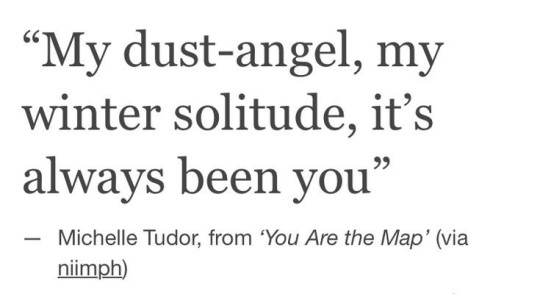


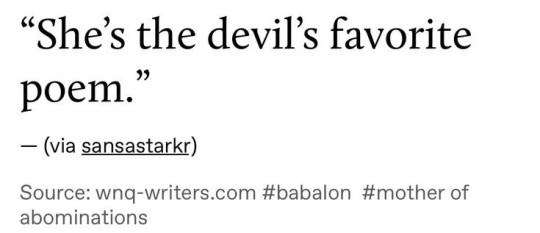


#studio ghibli#your name#princess mononoke#art#parallels#love#poetry#soul#melancholy#melody#piano#dust angel#moon#stars#barefoot#rose#gentle#ocean#solitude#john green#luminary#you're beautiful
5 notes
·
View notes
Text
" Megachile chrysopyga " //© Rewildingsuburbia
" Not all leaf cutter bees nest in existing cavities, this species has a preference for digging out her own burrow in the ground. "
Music: © joelsvnny - luminary piano edit
#Lake Coogee#Western Australia#nature#Macro#Portraits#Wildlife#Insects#Bee#Honeybee#4K#8K#12K#fpv#reels#photography#aesthetics#wanderlust#explore#follow#discover
39 notes
·
View notes
Note
Hi again!! I just had a brain wave while I was scrolling through pictures of Elvis. Could you write a fic of reader meeting Elvis(any era) at a masquerade ball?? I just think he'd be such a gentleman, as if he wasn't already🤧
Picture for inspiration!
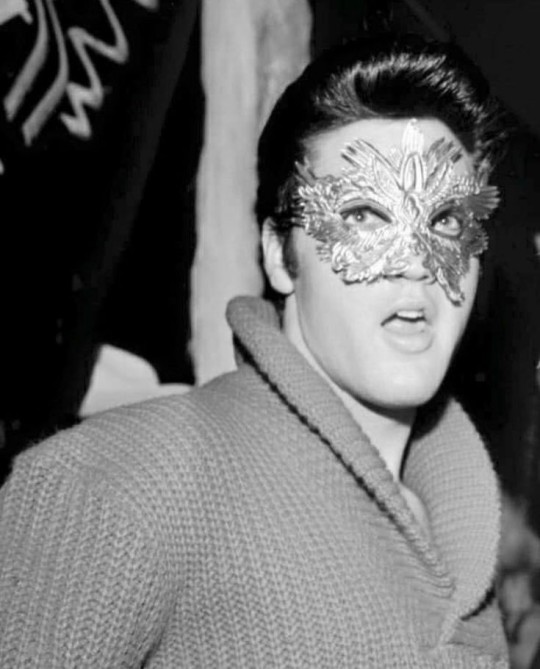
GOD I HARDLY KNOW MUCH ABOUT MASQUERADE BALLS BUT HERE WE GO!
based off of phantom of the opera it explains the ending lol "Killing Me Softly With His Song"
Pairing: 60s!Elvis Presley x fem!reader SO SORRY THIS TOOK SO LONG!
-------------------------------------------------------------------------- NOVEMBER 28, 1966.
Many gathered around at the Black and White ball. Many people were invited, from authors to musicians. You were a lucky poet whom had also been invited for your great works. You were in a form fitting white dress, silky as it rode down your body. You had matching heels and pearl earrings. You had a black corsage as well. The mask that decorated your face was half black, half white, with miniature pearls on the outside. ----- --- -----
The grand ballroom was a swirl of monochrome elegance, each guest a moving masterpiece in shades of black and white. The air was filled with the soft hum of conversation, punctuated by the clinking of champagne glasses and the gentle strains of a live orchestra playing timeless classics.
You made your way through the crowd, exchanging polite nods and smiles with other guests. You spotted a few familiar faces—an acclaimed novelist engrossed in conversation with a renowned jazz musician, a playwright animatedly discussing his latest work with a famous actress. It was a night where creativity and artistry mingled freely, and you felt a sense of belonging among these luminaries.
As you approached the center of the room, you noticed a figure standing alone by the grand piano. He was tall and striking, dressed in a tailored black suit with a white mask that contrasted sharply with his dark hair. He seemed lost in thought, his fingers gently tapping the piano keys as if composing a silent melody. ----- --- -----
Intrigued, you made your way over to him. "Hello," you greeted, your voice soft but confident. "Beautiful music tonight, isn’t it?"
He turned to you, his blue eyes were piercing through the mask. His aura was radiant. "I guess," he replied, his voice deep and resonant. "But I believe the most beautiful melodies are yet to be played."
You smiled, feeling a spark of connection. "Are you a musician?" you asked, curious. His voice sounded awfully familiar but you just couldn't put your finger on it.
He nodded. "And many other things. But tonight, I am simply a guest, enjoying the company of other artists." His drawl was heavy, almost addictive.
"What is your name, Mr. Tall, Dark, and-" He shoots you a glance. You immediately pull away from the bubbly introduction. To which he responds to with a crooked smile, then a light chuckle.
"Surprised you ain't guessed yet, doll." He said, looking down at you. He gently takes your hand, it was only then you would have noticed that there was music playing. You were too busy becoming entwined with your fascination for this utter stranger.
"May I have this dance?" His larger hand engulfs yours, all you could do was breathlessly nod.
----- --- -----
He had then led you to the dance floor. You two were almost in sync, predicting each move. As you moved together in perfect harmony, it felt as though the entire room had faded away, leaving just the two of you, lost in the music and the moment.
His hands slowly trickled down to your hips as you two had a gentle sway going. It was almost like being inside of the music. It was killing you softly.
He had began humming, you rested your head against his chest.
"Your whole aura, it's just-" He cuts you off.
"Shh. Enjoy the peace. Don't get caught up in conversation baby doll."
----- --- -----
When the two of you finished, there was a moment of silence, followed by an almost silent tension. "Thank you for being my muse tonight." He muttered, he rubbed your cheek with the back of his fingers. Admiring you.
You felt a blush rise to your cheeks. "It was my pleasure," you replied.
Right before you two departed from eachother, he stopped you.
"By the way," "Hm?" "The name's Elvis, Elvis Presley."
You were awe-stricken. How could you have not noticed sooner. But, by the time you were to turn around and face him. He was gone. Gone into the crowd of many.
All you were left with was the memory of your sweetly shared dance of genuine interest, and the thought of if you will see him again. FIN.
#elvis fanfiction#elvis fans#elvis fandom#elvisaaronpresley#austin butler#elvis the king#elvis#elvis 2022#60s#50s#fanfic#ball#ballroom#dance#vintage#aesthetic#love
24 notes
·
View notes
Text
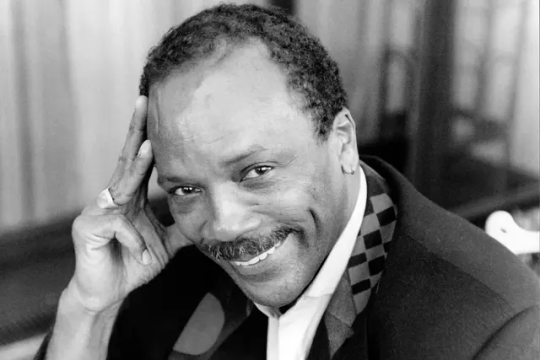
Quincy Jones, dies aged 91
Widely and wildly talented musician and industry mogul worked with Michael Jackson, Frank Sinatra, Will Smith and others
Quincy Jones, a titan of American entertainment who worked with stars from Frank Sinatra to Michael Jackson and Will Smith, has died aged 91.
Jones’ publicist, Arnold Robinson, said he died on Sunday night at his home in the Bel Air section of Los Angeles, surrounded by his family.
“Tonight, with full but broken hearts, we must share the news of our father and brother Quincy Jones’ passing,” the family said in a statement. “And although this is an incredible loss for our family, we celebrate the great life that he lived and know there will never be another like him.”
Jones was arguably the most versatile pop cultural figure of the 20th century, perhaps best known for producing the albums Off the Wall, Thriller and Bad for Michael Jackson in the 1980s, which made the singer the biggest pop star of all time. Jones also produced music for Sinatra, Aretha Franklin, Donna Summer and many others.
He was also a successful composer of dozens of film scores, and had numerous chart hits under his own name. Jones was a bandleader in big band jazz, an arranger for jazz stars including Count Basie, and a multi-instrumentalist, most proficiently on trumpet and piano. His TV and film production company, founded in 1990, had major success with the sitcom The Fresh Prince of Bel-Air and other shows, and he continued to innovate well into his 80s, launching Qwest TV in 2017, an on-demand music TV service. Jones is third only to Beyoncé and Jay-Z for having the most Grammy award nominations of all time – 80 to their 88 each – and is the awards’ third most-garlanded winner, with 28.
Among the tributes to Jones was one from actor Michael Caine, who was born on the same day as Jones: 14 March 1933. “My celestial twin Quincy was a titan in the musical world,” Caine wrote. “He was a wonderful and unique human being, lucky to have known him.”
Playwright and actor Jeremy O Harris paid tribute to Jones’s “limitless” contributions to US culture, writing: “What couldn’t he do? Quincy Jones, literally born when the limits on how big a black boy could dream were unfathomably high, taught us that the limit does not exist.”
Jones was born in Chicago. His half-white father had been born to a Welsh slave owner and one of his female slaves, while his mother’s family were also descended from slave owners. His introduction to music came through the walls of his childhood home from a piano played by a neighbour, which he started learning aged seven, and via his mother’s singing.
His parents divorced and he moved with his father to Washington state, where Jones learned drums and a host of brass instruments in his high-school band. At 14, he started playing in a band with a 16-year-old Ray Charles in Seattle clubs, once, in 1948, backing Billie Holiday. He studied music at Seattle University, transferring east to continue in Boston, and then moved to New York after being rehired by the jazz bandleader Lionel Hampton, with whom he had toured as a high-schooler (a band for which Malcolm X was a heroin dealer when they played in Detroit).
In New York, one early gig was playing trumpet in Elvis Presley’s band for his first TV appearances, and he met the stars of the flourishing bebop movement including Charlie Parker and Miles Davis. (Years later, in 1991, Jones conducted Davis’s last performance, two months before he died.)
Jones toured Europe with Hampton, and spent much time there in the 1950s, including a period furthering his studies in Paris, where he met luminaries including Pablo Picasso, James Baldwin and Josephine Baker. At the age of 23, he also toured South America and the Middle East as Dizzy Gillespie’s musical director and arranger. He convened a crack team for his own big band, touring Europe as a way to test Free and Easy, a jazz musical, but the disastrous run left Jones, by his own admission, close to suicide and with $100,000 of debt.
He secured a job at Mercury Records and slowly paid off the debt with plenty of work as a producer and arranger for artists including Ella Fitzgerald, Dinah Washington, Peggy Lee, Sarah Vaughan and Sammy Davis Jr. He also began scoring films, his credits eventually including The Italian Job, In the Heat of the Night, The Getaway and The Color Purple. (He produced the last of these, which was nominated for 11 Oscars, three for Jones himself.) In 1968, he became the first African American to be nominated for best original song at the Oscars, for The Eyes of Love from the film Banning (alongside songwriter Bob Russell); he had seven nominations in total. For TV, he scored programmes such as The Bill Cosby Show, Ironside and Roots.
His work with Sinatra began in 1958 when he was hired to conduct and arrange for Sinatra and his band by Grace Kelly, princess consort of Monaco, for a charity event. Jones and Sinatra continued working on projects until Sinatra’s final album, LA Is My Lady, in 1984. Jones’s solo musical career took off in the late 1950s, recording albums under his own name as bandleader for jazz ensembles that included luminaries such as Charles Mingus, Art Pepper and Freddie Hubbard.
Jones once said of his time in Seattle: “When people write about the music, jazz is in this box, R&B is in this box, pop is in this box, but we did everything,” and his catholic tastes served him well as modern pop mutated out of the swing era. He produced four million-selling hits for the New York singer Lesley Gore in the mid-60s, including the US No 1 It’s My Party, and later embraced funk and disco, producing hit singles including George Benson’s Give Me the Night and Patti Austin and James Ingram’s Baby Come to Me, along with records by the band Rufus and Chaka Khan, and the Brothers Johnson. Jones also released his own funk material, scoring US Top 10 albums with Body Heat (1974) and The Dude (1981).
His biggest success in this style was his work with Michael Jackson: Thriller remains the biggest selling album of all time, while Jones’s versatility between Off the Wall and Bad allowed Jackson to metamorphose from lithe disco to ultra-synthetic funk-rock. He and Jackson (along with Lionel Richie and producer Michael Omartian) also helmed We Are the World, a successful charity single that raised funds for famine relief in Ethiopia in 1985. “I’ve lost my little brother today, and part of my soul has gone with him,” Jones said when Jackson died in 2009. In 2017, Jones’s legal team successfully argued that he was owed $9.4m in unpaid Jackson royalties, though he lost on appeal in 2020 and had to return $6.8m.
After the success of The Color Purple in 1985, he formed the film and TV production company Quincy Jones Entertainment in 1990. His biggest screen hit was the sitcom The Fresh Prince of Bel-Air, which ran for 148 episodes and launched the career of Will Smith; other shows included the LL Cool J sitcom In the House and the long-running sketch comedy show MadTV.
He also created the media company Qwest Broadcasting and in 1993, the Black music magazine Vibe in partnership with Time Inc. Throughout his career he supported numerous charities and causes, including the , National Association for the Advancement of Colored People, the Jazz Foundation of America and others, and mentored young musicians including the British multiple Grammy winner Jacob Collier.
Jones’ illustrious career was twice nearly cut short: he narrowly avoided being killed by Charles Manson’s cult in 1969, having planned to go to Sharon Tate’s house on the night of the murders there, but Jones forgot the appointment. He also survived a brain aneurysm in 1974 that prevented him from playing the trumpet again in case the exertion caused further harm.
Jones was married three times, first to his high-school girlfriend Jeri Caldwell, for nine years until 1966, fathering his daughter Jolie. In 1967, he married Ulla Andersson and had a son and daughter, divorcing in 1974 to marry actor Peggy Lipton, best known for roles in The Mod Squad and Twin Peaks. They had two daughters, including the actor Rashida Jones, before divorcing in 1989. He had two further children: Rachel, with a dancer, Carol Reynolds, and Kenya, his daughter with actor Nastassja Kinski.
He never remarried, but continued to date a string of younger women, raising eyebrows with his year-long partnership with 19-year-old Egyptian designer Heba Elawadi when he was 73. He has also claimed to have dated Ivanka Trump and Juliette Gréco. He is survived by his seven children.
Other artists paying tribute included LL Cool J, who wrote: “You were a father and example at a time when I truly needed a father and example. Mentor. Role model. King. You gave me opportunities and shared wisdom. Music would not be music without you.” Femi Koleoso, bandleader with Mercury prize-winning jazz group Ezra Collective, called Jones a “masterful musician and beautiful soul”.
Daily inspiration. Discover more photos at Just for Books…?
19 notes
·
View notes
Text
Actually this Mary Sue character is so fun she’s like Barbie. She’s a world famous pro dancer. She’s an expert song writer. She’s a genius business woman. She can make rare medicine from herbs. She’s a medical luminary miracle worker surgeon. She can paint almost perfectly. She can play the piano. She can appraise art. She can design dresses. She can hack. She’s a pr expert. Literally I think she can do anything but yknow what idc she’s Barbie and all the other characters are also fun.
12 notes
·
View notes
Text

Tuesday, July 30, 2024
Today was SO. MUCH. FUN. I didn't get as much studying done today because we were at the water park all afternoon and early evening, but I got enough done in the morning and after we got home. Normally I would have done at least another 30 minutes of Algebra, but it's okay.
It wasn't that crowded today at all, which was so nice! E, H, and I did water slide races and spent a lot of time at the water playground. We have also decided to get together at some point before our Girl Scout meetings start back up to plan our welcome gathering. Since we're the oldest in the troop (we're multilevel so we have all ages), we help with a lot of the events. Also, this year, we're each going to be mentoring the younger girls, which will be such fun! We get to plan out activities and things for their journeys and really get to be like big sisters! Since there are three of us, and three lower levels, we're each going to take one level and then sort of switch throughout the scouting year so we each get to work with all three levels. The badge activities are a little different at each level, so even though they have meetings together, the activities are often age-aligned. Anyway, it probably sounds confusing, but it all works out. Perks and complications of a multi-level troop with girls from 5-15/16.
I have more free time tomorrow, but just in case I don't post, I have my weekend overnight youth group thing with church. I'll have my phone so I can check in and stuff, but I won't be able to really post again until Sunday.
Tasks Completed:
History 9 - Learned about the Romantic Orchestra and how it was impacted by the Industrial Revolution innovations
KA GRF Algebra 2 - Completed Unit 4: Lessons 1-2 + Unit 4: Quizzes 1-2
Duolingo - Studied for approximately 30 minutes (Spanish + French + Chinese) + completed daily quests
Piano - Practiced for two hours in one hour split sessions
Reading - Read pages 83-124 of The Luminaries by Susan Dennard
Chores - Laundry
Activities of the Day:
Personal Bible Study (John 14)
Water park with family and friends
Journal/Mindfulness
#study blog#study inspiration#study motivation#studyblr#studyblr community#study community#study-with-aura
10 notes
·
View notes
Text
I’ve been listening to playlists for each series and found my favorite songs that I think capture their love stories perfectly. May contain spoilers.
1) The Empyrean / Fourth Wing : Violet x Xaden
- Skin and Bones (David Kushner)
- Still Into You (Paramore)
- Luminary (Joel Sunny)
2) ACOTAR : Rhysand x Feyre
- Until I Found You (Steven Sanchez)
- A Thousand Years (Christina Perri)
- Interstellar - Piano & Violin Version (ViOLiNiA Zhanna Stelmakh)
3) Powerless : Paedyn x Kai
- Nobody Gets Me (Sza)
- im yours (Isabel LaRosa)
4) Divine Rivals : Iris x Roman
- Wicked Game (Annaca and Frederick Lloyd)
5) One Dark Window : Raven x Elspeth
- Under Giant Trees (Agnes Obel)
#acotar#powerless lauren roberts#powerless#empyrean#fourth wing#divine rivals#one dark window#moplayspoke#moplayspoke reads
23 notes
·
View notes
Text
Happy International Left Handers Day! Mayhap a Musical Delight for Your Fancy?
Sinistrals of the world, unite! (Dextral and "ambi"dextral swine, pay homage forthwith!)
To celebrate International Left Handers Day, August 13, I present you one of my favorite musical performances EVER! This is Ravel's "Piano Concerto for the Left Hand," which he composed for a fellow pianist who lost his right arm in World War I (a concept lovingly reproduced on M*A*S*H. many years later). The piano part features no right-hand play at all.
And I refer here not only to Ravel's composition but to this specific performance of it.
The pianist is Hélène Tysman, who completed her graduate work with this brilliancy, with Nicolás Pasquet conducting the Orchestra of the University of Music Franz Liszt Weimar on December 8, 2011 at the Weimarhalle, Weimar. Outstanding orchestration as well; I love the attentiveness of the concertmaster throughout the performance.
This video is a ticket redeemable for 20 minutes in a better world, but I absolutely insist you give it your undivided attention, or don't watch at all. The subtleties of Ravel and the triumphs of this performance are not suited to background music. (Yes I am being gatekeepy today. Go cut onions with your infernal right-handed scissors and cry me a river.)
youtube
CAPTION: Video performance on YouTube of Hélène Tysman performing Ravel's "Piano Concerto for the Left Hand."
On behalf of myself and all left-handers in the Universe, and Silence Terlais, to Cherry Ilyapa, to Afiach Bard, and many other left-handed luminaries in the Joshalonian legendarium, here's to the greatest hand in the world: the LEFT Hand! And to the people who work through this hand with all masterfulness.
#Maurice Ravel#Hélène Tysman#Piano Concerto for the Left Hand#International Left Handers Day#Fictional Left Handers#Youtube#Silence Terlais
9 notes
·
View notes
Text
Mach-Hommy Explores Diasporic Duality on New Album #RICHAXXHAITIAN

Mach-Hommy–the acclaimed and prolific artist who keeps his government name unpublished, maintains no social media presence, and covers his face with a bandana of the Haitian flag–releases #RICHAXXHAITIAN, his first solo studio album since 2021, out now on all platforms. Released in time for Haitian Flag Day (May 18th), #RICHAXXHAITIAN channels the troubled political evolution of Haiti, as well as its rich cultural inheritance. Galvanized by the country's turbulent past, Mach-Hommy presents a beacon towards a better future.
#RICHAXXHAITIAN is the fourth album in a tetralogy of albums that examine Mach-Hommy's relationship with his homeland and provide a wide-ranging account of how its issues intersect with problems facing the world at large. While the first album in the series, H.B.O. (Haitian Body Odor), reclaimed an ugly stereotype, and his two acclaimed 2021 albums, Pray For Haiti and Balens Cho (Hot Candles), chronicled hardship and recovery, #RICHAXXHAITIAN is a small musical panacea for his homeland amidst poverty and political strife, combating the public's negative images of Haiti by focusing on the greatness and prosperity of the country's diaspora. Over the course of the album, Mach-Hommy emphasizes the country's potential, strategizing ways that his troubled homeland could become an exemplar of Black cultural and economic excellence.
#RICHAXXHAITIAN draws from a variety of musical styles, welcoming producers like Grammy-winning producer Conductor Williams, along with Multi-Grammy-winning producer KAYTRANADA, Grammy-nominated producer Quelle Chris, longtime associate Sadhu Gold, and others, to indulge their most creative impulses. The album progresses from vintage samples from the pre-rock era to futuristic electronic, jazz, and soul music, sketching a potential path for Haiti to evolve from developing nation to Afro-Futurist paradise.
Last week's single, "#RICHAXXHAITIAN," a collaboration with KAYTRANADA and L.A. legend 03 Greedo, exemplifies Mach in the latter mode, using a house-inflected instrumental and an interpolation of Afrobeat legend Odion Iruoje's "Ikebe" to provide a luxurious platform for both emcees to flex their hard-earned wealth. Focus track "COPY COLD," produced by Quelle Chris, draws from the other end of the spectrum. The song features a guest verse from Black Thought, who has long praised Mach-Hommy and called him one of his favorite emcees, as both emcees unfurl some of their densest verses to date. Originally recorded as a demo during a difficult period of Mach's life, nearly ten years ago, Mach was inspired to dust off the old tape with the hopes of collaborating with an emcee of Black Thought's caliber on the track. Over Quelle Chris's rippling piano instrumental, the two rappers beat against the current mode of label-driven rap beef, instead elevating the art of the emcee with kindred spirit collaboration.
03 Greedo and Black Thought lead a long list of collaborators that make #RICHAXXHAITIAN one of Mach-Hommy's most ambitious albums to date. Mach connects with R&B/jazz luminary HEPHZIBAH on "SONJE," an Afro-Futurist and psychedelic highlight that approaches the dissonant highs of 70s jazz fusion. Buffalo-based activist/singer/songwriter Drea D'Nur graces "POLITickle" with her luminous vocals, putting a button on a song that directly comments on how global capitalism tramples culture and fosters poverty. Mach rolls out the red carpet for Roc Marciano on the brief, but brilliant "ANTONOMASIA," as the two underground heroes trade verses over big band jazz samples and tribal drums. Mach feels right at home when rapping with frequent collaborators like Your Old Droog, Tha God Fahim, and Big Cheeko, providing a familiar anchor for longtime fans and ice cold bars for anyone who might not be familiar with their chemistry.
Born in Newark and raised in Port-Au-Prince amongst the elders of his culture, Mach-Hommy has always strongly identified with his home country's struggle, and his people's resilience. Haiti was the world's first Black republic formed as the result of a successful slave revolt. The Caribbean nation's very existence was a thumb in the nose of white supremacy, heralding the gleaming potential of Black self-government in the new world. Of course, the colonial powers could not let this stand: shortly after Haiti won independence, its former colonial overlord France levied a punitive tax, designed to cripple the young nation's economy and prevent it from growing into a power in the Caribbean. Still, despite the various man-made and natural disasters that have plagued the island nation over the centuries, the people of Haiti have grown strong, developing an influential cultural tradition and a vibrant diaspora, of which Mach-Hommy is a proud member.
Attempting to transform our modern dystopia into a utopia using only his rhymes and force of will, Mach-Hommy invites us all, from his most loyal investors to his freshest fans, to imagine a brand new world. With #RICHAXXHAITIAN, that seemingly impossible dream creeps ever closer.
“I’ve always wanted to rep for Haiti and the cultural and intellectual richness we’ve provided the world,” Mach-Hommy says. “From our musical styles like kontradans that have influenced world music, our natural resources which provide so much raw material for so many important advancements in technology, our thinkers that pioneered philosophical movements and Black pride, and our spiritual leaders who kept the religious traditions of Guinea alive and intact, the religious traditions of Ayiti….”
Buy #RICHAXXHATIAN on vinyl, CD, and cassette at Zotanica
#mach hommy#richaxxhaitian#spotify#youtube#music#artist#musician#soundcloud#culture#rapper#art#rap#griselda#real music#rap culture#newark#jersey#jersey rappers#new jersey#new jersey rapper#westside gunn#haiti#haitian rapper#haitian artist#haitian#haitians#free haiti#haiti crisis#Spotify
10 notes
·
View notes
Text

Interesting new music to listen to (my recommendations):
“The Player”, Clara Mae: a raw and empowering song, with poetic interludes and aesthetics that flawlessly complement the lyrics.
“My Mother Told Me”, Ekaterina Shelehova: inspired by Russian folk music. The artist deeply touched my heart with her unique, angelic voice.
“Ojos Diamante”, Ximena Sariñana: about encountering hardship in love and wishing to be reassured by looking in one’s partner’s eyes
“Frailty of Nights”, Amr Shalaby: need piano music to loop endlessly? This one, you’ll listen to it on repeat, especially if you’re seeking something calm and majestically beautiful
“Nobody’s soldier”, Hozier: an anti-war song about the violence we’re witnessing from afar while feeling angry and hopeless. The white flag and the child doll in the music video gave me chills.
“luminary rainbows”, ionnalee: to whom it may concern
“Ghost in the Machine”, Raycheal Winters: a lyrical and musical masterpiece, about finding the inner strength to overcome trials and reach self-realization
“My Body’s My Buddy”: about loving and accepting one’s body throughout its changes, for the care, safety and experiences it offers
“Vampires”, Ha Vay: about our obsession with eternal youth, packed with references to fairytales and the fantasy genre
“Grandiose”, Pomme & Ichiko Aoba: the Japanese version of the third track of “les failles”, about wanting to be a mother while questioning if it’s a genuine desire or if it’s largely due to social influences
“Parasite”, Chløë Black: dark feminine energy, hell yeah! And with a pun between “parasites”, “Paris lights” and “Paradise”. Need I say more?
“That’s My Floor”, Magdalena Bay: another banger by this group of two, known for their hypnotic sound, references to Internet culture, surrealist visuals, existential undertones and experimental approach to music
“Dancing With Fire”, Sever the Light: like the title, the song is fire!
“Coloured Concrete”, Nemahsis: crafted with originality and intricate metaphors, this song perfectly captures the feeling of confusion while growing up. It’s the one that I related to the most.
Other songs that I wish I mentioned: Dark Night of the Soul (Simone Simons, ft. Ayreon), Pink Electric Shoes (Parov Stelar), Heartbreak Rodeo (Lily Meola), That’s Life (Luna Li), Eternals (Abstracted Minds), Offerings to the Gods (Othala), Plead (Ashley Kutcher), rush (Marco Luka), Can’t Stop Me Now (KAZIMI), Hung the Moon (Cults), Ethereal (TXMY x Freya Ridings), Thank Goodness (Hope Tala), beautiful girls get the ugliest world (carolesdaughter), Left of Me (Andrea Bejar), Come Alive (Phantogram), Say My Name (Cassyette), Skin & Bones (Silverstein), Drift Slow (Glasser), gonna have to trust you (Stephen Stanley), feelings don’t lie (Ofenbach & salem ilese), Shell of You (Lava La Rue), Another High (Mothica)
#new music#ekaterina shelehova#ximena sariñana#hozier#nobodys soldier#ionnalee#ha vay#pomme#ichiko aoba#magdalena bay#nemahsis#simone simons#parov stelar#luna li#othala#ashley kutcher#cults#freya ridings#hope tala#carolesdaughter#phantogram#cassyette#silverstein#stephen stanley#ofenbach#salem ilese#lava la rue#mothica
4 notes
·
View notes
Text


“I was very much into the poetry and music scene that was going on at the time. A vinyl EP of Christopher Logue’s Red Bird was something that I listened to frequently. So when Royston Ellis invited me to accompany him on guitar I knew exactly how to play textual music around his poems.
I knew about the Beats using music behind their writing. Jack Kerouac read from On the Road with a piano backing him on the Steve Allen Show. Royston did some stuff with the Silver Beetles (the Beatles). Royston was going to be reading poems, and I could play guitar behind them, not with just abstract content, but with melodic passages as well.
I did three events with Royston in 1961: a Heretics Society talk at Cambridge University in March, the British Poetry Festival in July and a TV programme in September.
The British Poetry Festival was a massive, week-long event in London with various literary luminaries such as Ted Hughes and Sylvia Plath. There were even poets I had read at school such as William Empson, alongside actors from the Royal Shakespeare Company such as Dame Flora Robson. It was a huge honour to take part, courtesy of Royston.”
— Jimmy Page
#jimmy page#1961#60s#1960s#sixties#led zeppelin#classic rock#rock#hard rock#rock n roll#rock and roll#rock music#60s rock#60s music#60s icons#1960s music#60s poetry#poetry#royston ellis#sylvia plath#ted hughes#by dee dee 🌺🕯️
65 notes
·
View notes
Text
Game Spotlight #2: Mother/Earthbound Beginnings (1989)
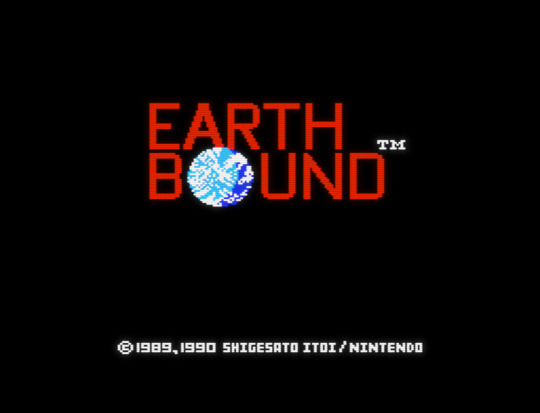
Inspired by the Japanese release of Mother 34 years ago this week, Ash gives one of her favorite games a (very long) feature on Acquired Stardust! Much has been made of its difficulty, though modern advancements in emulation including ROM hacks (in particular we recommend the excellent 25th Anniversary Edition) and a wonderful release as part of Nintendo Switch Online’s selection of classic game offerings have reduced this particular pain point (that may or may not exist in the first place!) and provide excellent entry points into one of 1989′s, and all of gaming’s, most enduring icons.
An eerie low synth is quickly met by a gentle sequence of piano keys as the phrases ‘produced by Nintendo’ and ‘presented by Shigesato Itoi’ appear across the screen. It is at once lonely and beautiful sound that matches with the logo containing a shot of Earth from space, and it sets the tone perfectly for what is to follow after being prompted to name several characters. A text scroll begins describing an unsettling story taking place in the early 1900s, 80 years before the events of the game, set in rural America, and it is here at this incredibly early point where it starts to become abundantly clear that this game is decidedly different than many other games of its time and platform. Indeed, a clue in the very first few seconds of the game practically call it out - we have a name prominently associated with this game.
It’s hard to imagine now, but video games were not always this way. Industry wide, credit was a rare thing for developers to receive and they often resorted to pseudonyms, the identities of which they allude to often being lost to time, and often were explicitly disallowed from being credited. In fact, two of the largest video game publishers today (namely Activision and Electronic Arts) were founded in part due to frustrations with companies such as Atari that, in an effort to reduce individual footprints on games and therefore make their talent less likely to be poached by rivals, did exactly that. Nintendo luminary Shigeru Miyamoto isn’t explicitly advertised in 1985′s Super Mario Bros. as being its creator either on the title screen or in a credits sequence at the end of the game, and even contemporary Nintendo Entertainment System role playing games of the time such as 1986′s Dragon Quest only features specific individual credits at the end of the game, and 1987′s Final Fantasy only credits the game to the company that produced it rather than any individuals in the creative process.
Mother, alternatively known as Earthbound Zero or Earthbound Beginnings in the west after its more famous namesake, 1995 Super Nintendo RPG Earthbound leads with something very much breaking in tradition of early eras of gaming in that it is explicitly, unavoidably from someone. An individual with a name. It is this that is especially striking to me before we even get to the surprisingly creepy opening text scrawl that sets up the backstory of Mother.
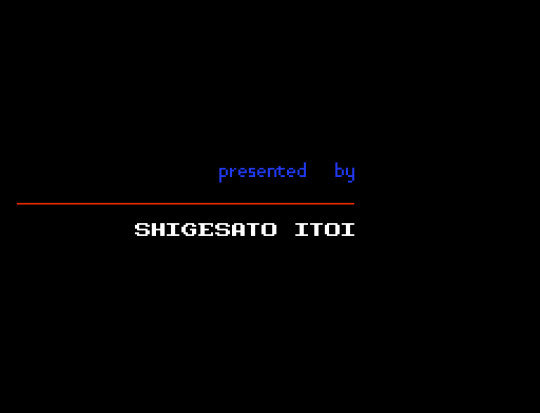
Born in November 1948, Shigesato Itoi is something of a renaissance man who became a bit of a celebrity in the incredibly unlikely position of copywriting, which is essentially another word for ‘advertising’, and one of the earlier examples of celebrity game developers in Japan that come to mind off the top of my head. Having created a number of famous ad slogans and campaigns including a 1982 anti-war ad featuring two armed soldiers standing opposite each other, beckoning their Prime Minister forward onto the front lines before them, Itoi’s ads often feature bold imagery contrasted with short phrases that manage to provoke vivid emotion in the viewer, and this maximizing of such little material makes two things abundantly clear: Itoi is not only an extremely effective communicator of ideas, but his specific skillset of utilizing images and sparse but provocative text is perfectly suited not only to video games but especially the world of NES role playing games which feature incredibly strict limitations, especially by today’s standards, though even by 1989 Japan had started to see more powerful systems such as Sega’s Mega Drive console having released a year prior. Befitting of its celebrity-via-advertising creator, Mother has one of the absolute coolest commercials I’ve ever seen with the slogan “no crying until the ending”.

Mother is a famously difficult game, for which I think it gets somewhat of an unfair reputation. While it does require copious amounts of grinding to increase one’s level and stats (as was standard for role playing games of the era and even for many years after) and see plenty of steep and extremely sudden curves in battle balance, there are no game overs in Mother. Upon defeat in battle the player will simply be returned to the last physical location at which they saved with all of their experience points acquired up to the point of defeat intact. There is no loss of items either, only a loss of money you currently have on you, which isn’t an especially big deal in part due to money not accruing in the player’s inventory by default (it is instead obtained from ATMs via a credit card at department stores) as well as the abilities protagonist Ninten unlocks through leveling up often being more useful and far less limited in use than purchasable items are. In this way there are shockingly few consequences for dying in Mother, with even many games decades later returning you to the title screen to load the data you last saved, with players who aren’t mindful of saving often being able to potentially lose hours of progress at a time. Just as well, grinding becomes significantly easier with the inclusion of additional party members and guest characters that enter the party occasionally. The only particular pain point of Mother is another common feature of role playing games of this era, where actions taken applying to an enemy who has died before said actions have occurred will miss as opposed to applying to the next enemy in the encounter.
Instead of traditional difficulty, Mother is a perfect example of games of its era in that it’s a perfect Nintendo Power game. Players are given very few directions and objectives, the world is extremely vast and dialogue with townspeople is often inane and not particularly helpful. It is very easy to become lost literally and figuratively, wondering where exactly you are in the game world (despite a rather useful map being built into the game from the start) or even what you’re meant to be doing, only to resort to a walkthrough and find out you were supposed to purchase a canary egg, hatch said canary who is described as having “sad eyes”, and return it to its mother somewhere. Suffice it to say Mother is a very cryptic game that takes the tone of a light parody of genre tropes and features a shockingly wide array of ways in which the player can interact with the world and events that can occur completely irrelevant to the actual story of the game to the point that I feel like you could make up a bizarre lie about something in the game as a playground rumor and someone would conceivably believe you no matter how outlandish it was. This is the sort of game that strongly encourages and rewards spending time with it. Getting lost in it. Having your own experience with it, and forming your own genuine connection with it.
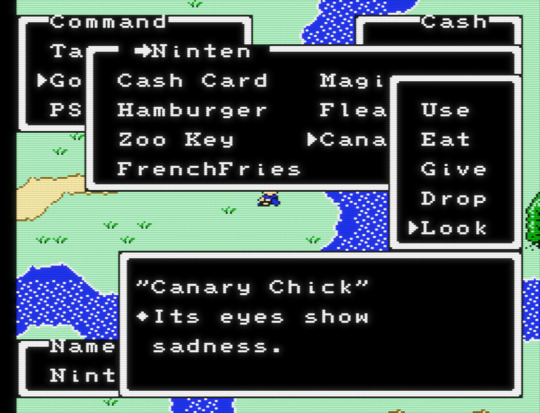
It is exactly this sort of nature that makes the game stand out so much coming from an individual as opposed to a game designed by committee. Sometimes things just happen, such as a talking penguin questioning why he came to a gathering of monkeys in an underground maze, or catching a cold from a townsperson that must be cured at a hospital. Just as well the game contains a frankly shocking level of interesting and even emotionally gripping story content (much of which does come towards the end of the game). Mother is a game unavoidably art from an individual artist and everything in the game is included because it was specifically intended by its creator, and it’s this fact permeating the entire experience that makes it so attractive to people. Aside from the scenario and general happenings of the game, composers Keiichi Suzuki and Hirokazu Tanaka provide what has my vote for the strongest soundtrack top to bottom on the entire platform, even being featured in a vocal album containing English lyrics that may be saccharine and cheesy but are also very genuine and vulnerable. Several of the songs have been used throughout the series and are easily recognizable to gamers who haven’t even ever touched the series.

A point of particular interest for me is all the similarities between Mother and Pokemon, with many people picking up on visual similarities between the final boss of Mother, Giegue, and Pokemon’s final optional battle in Mewtwo. Much of the structure of the game is also similar, with a young protagonist leaving his ostensibly single mother on a coming of age journey obviously inspired by 1986 film Stand By Me (itself based on an earlier story by Stephen King), which is also referenced pretty directly on a television set in the Pokemon protagonist’s house. Speaking of traveling, as mentioned before the world of Mother is indeed incredibly vast and much like Pokemon is both a contemporary setting (as opposed to a fantasy setting or a historical setting) and also traveled through almost completely seamlessly, whether it be on foot or by train. It is through this railway, the Paradise Line, that one can start to appreciate just how big the game world actually is. There’s even a sidequest in which Ninten must find an old man’s missing dentures, also featured in the first generation of Pokemon games. It’s an odd series of things that line up very well, and we’re not done there. Composer Hirokazu Tanaka actually ended up heading Creatures, Inc. which has worked in tandem with Gamefreak and The Pokemon Company on various aspects the Pokemon franchise since at least 1998, potentially even earlier. Just as well, Pokemon creator Satoshi Tajiri famously referring to Mother as “not very kind” in its design in an October, 1989 review, nearly 7 years before the Japanese release of the first wave of Pokemon games.
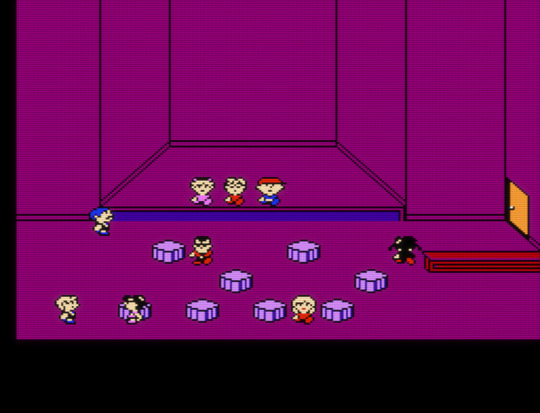
There is so much I could say about this game, and indeed so much I have already said, but the purpose of Acquired Stardust is less to give you the minute to minute plot points (particularly in story-based games, we would rather you experience these for yourself than spoil the experience for you ahead of time) and more so about giving you a recommendation. To that end I can only tell you that Mother has Acquired Stardust’s endorsement as well as my own personal endorsement. Despite its age it manages to feel shockingly modern in many ways, not the least of which due to its deep influence on the indie game scene in which ‘quirky RPG Earthbound-inspired RPG about depression’ has become a scene unto itself, and games like Yume Nikki which have made their own marks on the medium which in turn has spawned a scene unto itself.
Mother is one of the games that made gamers the world over think of game developers as artists first and foremost, a notion that largely is patently accepted in today’s scene. It features an incredible plot punching far above its weight especially in the latter half, likely the best top to bottom soundtrack on the NES, rewarding exploration, and much of the supposed difficulty is mere intimidation or remedied by emulation features such as savestates, ROM hacks, fast forwarding and rewinding.
There are plenty of misconceptions and talking points ready to assure you that Mother isn’t a very good game and that Earthbound supersedes its predecessor entirely, but that’s a very western-centric viewpoint often born of a particular fusion of recency bias and nostalgia, given that predecessor Mother was never released outside of Japan and sequel Earthbound is the title most people who know the trilogy started with, and that sentiment I promise you simply isn’t true. Both games are different enough and well worth your time, as is 2006′s Mother 3. If you have even a passing interest in video games as an art form, Mother is a vitally important divergence point between ‘games as distraction’ and ‘games as art’, and an incredible milestone for the medium. It is something that changed the way we think about games and the way we interact with them, both directly and through the countless games it’s directly influenced. Just remember: no crying until the ending!
A gem hidden among the stones, Mother is unquestionably stardust.
--Ash
#Video Games#Gaming#NES#Nintendo#Retro Gaming#Retro Games#RPG#Role Playing Games#Mother#Earthbound#Shigesato Itoi#Acquired Stardust#1989#Game Recommendations#Game Spotlights
18 notes
·
View notes
Text
" Autumn vibes in Patagonia " //© Mathias Koch
Music: © joelsvnny - luminary piano edit
#Patagonia#Chile#nature#landscape#Autumn#Fall#Mountainscape#Forest#Trees#Snow#Peaks#Fog#Clouds#4K#8K#12K#fpv#Drone#Reels#photography#aesthetics#wanderlust#explore#follow#discover
46 notes
·
View notes
Text
New York City Guitar Orchestra - Spectra: New Music for Guitar Orchestra - a massive collection (2+ hours) of new works by 18 composers
The New York City Guitar Orchestra, conducted by Jason Sagebiel and Nicoletta Todesco in collaboration with artistic direction by John Olson, releases Spectra, a collection of newly composed works for multiple guitars by such luminaries of the plucked string world as David Leisner, Frederic Hand, David Loeb, William Anderson, and João Luiz. Music for multiple players on the same instrument has grown in recent years, perhaps inspired by the success of percussion ensembles. Works by prominent composers for several bassoons, or flutes, or pianos have made their mark on concert programs. The guitar is a natural fit for similar ventures, inhabiting its own space in the concert music world, increasingly integrated with other instruments but retaining its unique profile. The music and spirited collaboration on this recording reflect the sense of community that is only further enhanced by projects of this sort. The New York City Guitar Orchestra has undertaken an ambitious project of commissioning seventeen new works for multiple guitars. The result is Spectra, an exuberant celebration of the possibilities afforded by the guitar orchestra format and the variety of compositional approaches taken by the composers who were involved in the project.
3 notes
·
View notes
Text
Ned Collette — Our Other History (Sophomore Lounge)

Back in 2018, Ned Collette released an astonishing double album called Old Chestnut. Across the album’s four sides, Collette laid out a mesmerizing patchwork of folk, prog and jazz that felt intimate yet expansive. On his new album, Our Other History, Collette has invited a host of luminaries to color in his compositions — including Jim White and Mick Turner of Dirty Three on drums and electric guitar; Leah Senior on backing vocals; and Chris Abrahams of The Necks on piano — while the songs themselves feel more traditional in flavor, rooted in folk, blues and country influences.
The heart of most Ned Collette songs is his robust finger-picked nylon-string guitar playing, and his nasal, conversational vocal delivery. On the opening title track, limpid cascades of synthesizer connect a throughline from Old Chestnut, while each of the guest players takes a turn to shine. Senior’s airy vocals and Turner’s subtle guitar work flesh out the song so effectively that the eight-minute run-time flies by before gently closing with an elegant fade-out. This tendency towards fading out several of the songs on the track list gives the impression of listening in to a room full of excellent musicians who are unselfconsciously feeling their way through the performances. On “Little Hans,” however, the song is cruelly faded out just as it threatens to boil over into a sizzling jam session.
Given the caliber of players on this album, each take of the songs no doubt yielded unrepeatable magic, so it must have been hard to settle on the versions that would not only work best as individual songs, but also play off each other as a collection. For this reason, it seems like either the players were being polite and restrained in their contributions, or takes were selected that have the same subdued, easy-flowing grace.
“Bridges of Sunlight” and closer “Blue Rooms” seem to take up the same cosmic, incandescent thread introduced on “Our Other History,” while “Athens,” “Endtimes Boogie” and “Shot Through” take on more familiar, grounded idioms that are as well-worn as a beloved piece of furniture. Then, to lend an authentic “album” feel, Collette includes guitar instrumental “Friendly Fucker” and a spoken-word piece called “The Kitchen Tunnel.”
Collette toured with some of the line-up featured on Our Other History back early in 2023, and it’s only now we’re hearing the fruits of the recording sessions. It’s incredibly exciting to witness the product of these collaborations, but also tantalizing to imagine where the sessions may have ventured given freer rein.
Tim Clarke
#ned collette#our other history#sophomore lounge#tim clarke#albumreview#dusted magazine#songwriter#rock#jim white#mick turner#chris abrahams#leah senior
4 notes
·
View notes